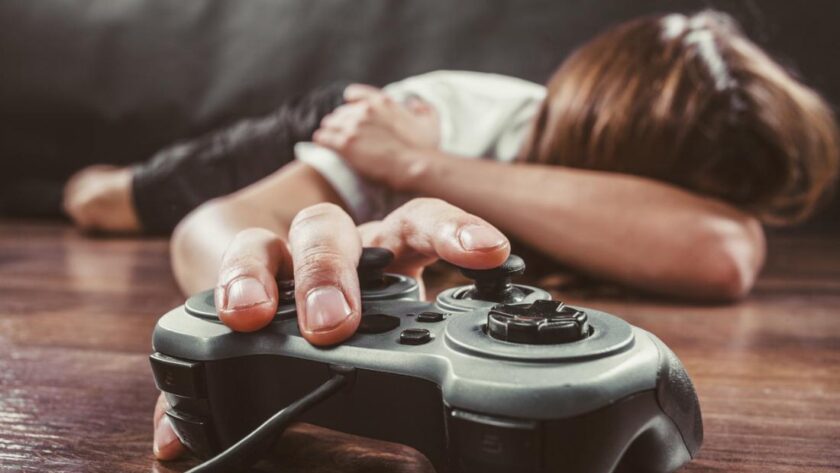Video games have become a ubiquitous part of modern life. From young children to adults, millions of people around the world spend significant amounts of time playing video games, whether through consoles, PCs, or mobile devices. While video games have long been viewed simply as a form of entertainment, the influence of video games reaches far beyond just leisure time. Video games can impact various aspects of our daily lives, from our social interactions and emotional well-being to cognitive development and even physical health. This article delves into the multifaceted ways video games impact our lives, both positively and negatively.
1. Cognitive Development and Mental Skills
a. Enhancing Problem-Solving Abilities
Many video games, especially strategy and puzzle games, require players to think critically, analyze situations, and solve complex problems. This kind of gameplay fosters problem-solving skills, as players must navigate challenges, plan strategies, and make quick decisions under pressure. Games like Tetris, Portal, and The Legend of Zelda are examples of how games can promote cognitive functions like spatial awareness, logical reasoning, and decision-making.
- Critical Thinking: Games that require players to solve puzzles or defeat enemies often force them to think strategically, enhancing their critical thinking abilities.
- Quick Decision Making: Action games and shooters require players to make quick decisions under stress, improving their ability to react in real-life situations.
b. Memory Improvement
Certain video games are designed to improve memory skills. Games that require players to remember patterns, sequences, or maps (such as Simon Says, or action-adventure games like Dark Souls) engage short-term and long-term memory. This constant mental stimulation can improve players’ ability to retain and recall information.
- Working Memory: Puzzle games, adventure games, and role-playing games often require remembering past events, solving puzzles, or recalling information to progress.
- Spatial Memory: Games that involve navigation or exploration, like Minecraft or Assassin’s Creed, enhance players’ spatial memory, helping them remember the layout of the game world.
c. Enhancing Hand-Eye Coordination
Action-packed video games require players to have sharp hand-eye coordination, as they often need to perform rapid movements based on visual cues. Games like Call of Duty, Fortnite, and Overwatch are examples where quick reflexes are crucial. This improves the ability to process visual and physical stimuli simultaneously, a skill that translates into real-life activities such as driving or playing sports.
- Reflex Improvement: Fast-paced action games improve reflex speed, coordination, and motor skills.
- Precision and Accuracy: Games that require precise movements, such as racing or flight simulators, help improve accuracy and fine motor skills.
2. Emotional and Social Impact
a. Stress Relief and Emotional Regulation
Many individuals turn to video games as a way to de-stress and unwind. Immersing oneself in a virtual world can provide an escape from the stresses of daily life. Research has shown that playing certain types of games, especially action-adventure or role-playing games, can reduce feelings of anxiety and depression by providing a distraction, improving mood, and fostering a sense of accomplishment.
- Escaping Reality: Games offer a temporary escape from real-world problems, which can be therapeutic for people dealing with stress or emotional challenges.
- Improved Mood: Engaging in fun or enjoyable games can trigger the release of dopamine, the “feel-good” hormone, improving mood and boosting feelings of happiness.
b. Social Interaction and Community Building
With the rise of multiplayer online games, video games have transformed from a solitary activity to a social one. Online gaming communities provide an avenue for players to connect, collaborate, and form relationships. Games like World of Warcraft, Fortnite, and League of Legends allow individuals to play with others from around the globe, fostering a sense of belonging and social interaction.
- Teamwork and Collaboration: Multiplayer games require players to work as a team to achieve a common goal. This collaboration can translate into real-world teamwork skills.
- Global Connections: Online gaming communities break down geographical and cultural barriers, allowing people from different parts of the world to connect and form friendships.
c. Sense of Accomplishment and Achievement
Video games provide clear goals and rewards that enhance a player’s sense of achievement. Whether it’s leveling up, completing a quest, or unlocking an achievement, these milestones offer a sense of progress and accomplishment. For individuals struggling with motivation in other areas of life, video games can provide a much-needed boost to self-esteem and confidence.
- Goal Achievement: Many games are designed around completing tasks or quests, offering players a structured path to success and rewarding their efforts.
- Personal Growth: Games that challenge players with higher difficulty levels can build resilience, perseverance, and patience, as they push themselves to overcome obstacles.
3. Physical Health Implications
a. Physical Activity through Gaming
While video games have traditionally been linked to sedentary lifestyles, there has been a shift in the gaming industry toward incorporating physical activity. Games like Just Dance, Ring Fit Adventure, and augmented reality games like Pokémon GO encourage players to get up, move, and engage in physical activity.
- Active Gaming: Games that require motion, such as those played with motion-sensing devices (e.g., Nintendo Wii or PlayStation Move), can provide a workout while offering entertainment.
- Encouraging Outdoor Activity: Pokémon GO and similar location-based games have encouraged millions of players to leave their homes, explore new places, and stay physically active.
b. Sedentary Lifestyle Risks
On the flip side, excessive gaming can contribute to a sedentary lifestyle, which is associated with a variety of health issues such as obesity, poor posture, and cardiovascular problems. Spending long hours in front of a screen without taking breaks can also strain the eyes and lead to headaches or other physical discomforts.
- Posture Issues: Sitting for extended periods during gaming can lead to poor posture, back pain, and neck strain.
- Eye Strain: Staring at screens for long hours can cause digital eye strain, leading to dry eyes, headaches, and blurred vision.
4. Academic and Career Impact
a. Developing Critical Thinking Skills
Video games, especially those that require strategic planning or tactical thinking, can enhance skills that are useful in academic and professional settings. Games like SimCity or Civilization require players to manage resources, think critically, and plan long-term strategies—skills that are valuable in many careers and fields of study.
- Resource Management: Many strategy games require players to balance resources, budget, and make decisions that affect the game’s outcome—skills applicable in business and economics.
- Time Management: Multiplayer games and large-scale games often require players to manage their time effectively to progress, which can translate into better time management in real life.
b. The Impact of Gaming on Academic Performance
Although gaming can enhance certain skills, excessive gaming may negatively impact academic performance. Time spent gaming may lead to procrastination, missed assignments, or lack of focus in schoolwork. However, when balanced properly, video games can also act as a motivational tool or a reward for academic achievement.
- Focus and Discipline: Excessive time spent gaming can interfere with academic responsibilities and lower productivity if not managed well.
- Learning Opportunities: Educational games and simulations can enhance learning in subjects like history, science, and language.
7 FAQs About Video Games and Their Impact on Daily Life
- Can video games improve my cognitive abilities?
- Yes, video games can enhance memory, problem-solving, decision-making, and multitasking abilities, depending on the type of games played.
- Are there any negative effects of playing video games?
- Excessive gaming can lead to a sedentary lifestyle, poor posture, eye strain, and social isolation. It’s important to practice moderation.
- How can video games help with stress?
- Video games can provide an immersive experience that helps distract individuals from stress and anxiety, offering a temporary escape and improving mood.
- Do video games improve hand-eye coordination?
- Yes, action games, racing games, and other fast-paced genres can improve hand-eye coordination and reflexes.
- Can video games make me smarter?
- Video games that involve strategy, memory, and problem-solving can improve cognitive skills such as critical thinking, spatial awareness, and memory.
- Is playing video games a good way to socialize?
- Multiplayer and online games offer a platform for people to interact, make friends, and engage in collaborative activities.
- Are there health benefits to playing video games?
- Active gaming can promote physical activity, and certain games are designed to enhance mental well-being, such as those encouraging movement or relaxation.
Conclusion
Video games have a profound impact on our daily lives, influencing everything from our cognitive abilities and emotional well-being to our social interactions and physical health. While they offer numerous benefits—such as enhanced problem-solving skills, stress relief, and social connections—it’s important to balance gaming with other aspects of life to avoid potential negative consequences like a sedentary lifestyle or academic underperformance. When played in moderation, video games can be a powerful tool for personal development, entertainment, and health improvement.
Key Takeaways
- Video games enhance cognitive skills, including problem-solving, memory, and hand-eye coordination.
- Video games can improve mental health by reducing stress, boosting mood, and offering social connections.
- Active gaming encourages physical activity, but excessive gaming can lead to a sedentary lifestyle.
- Gaming can foster teamwork, leadership, and time-management skills, which are valuable in academic and professional settings.
- It’s essential to find a balance between gaming and other activities to ensure a healthy and fulfilling lifestyle.




